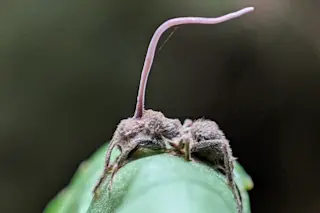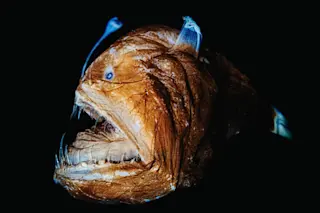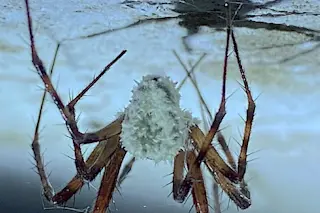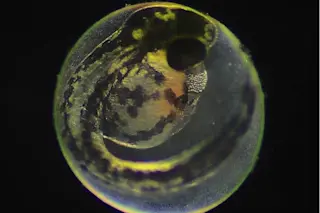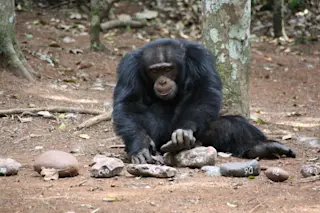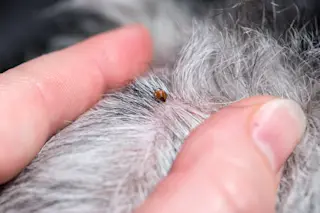We human beings are very attached to our brains. We're proud of them - of their size and their complexity. We think our brains set us apart, make us special. We scare our children with tales of monsters that eat them, and obsessively study how they work, even when these efforts are often fruitless. So, of course, we are downright offended that a simple, single-celled organism can manipulate our favorite organ, influencing the way we think and act.
Toxoplasma gondii is arguably the most interesting parasite on the planet. In the guts of cats, this single-celled protozoan lives and breeds, producing egg-like cells which pass with the cats bowel movements. These find their way into other animals that come in contact with cat crap. Once in this new host, the parasite changes and migrates, eventually settling as cysts in various tissues including the host's brain, where the real fun begins. ...



